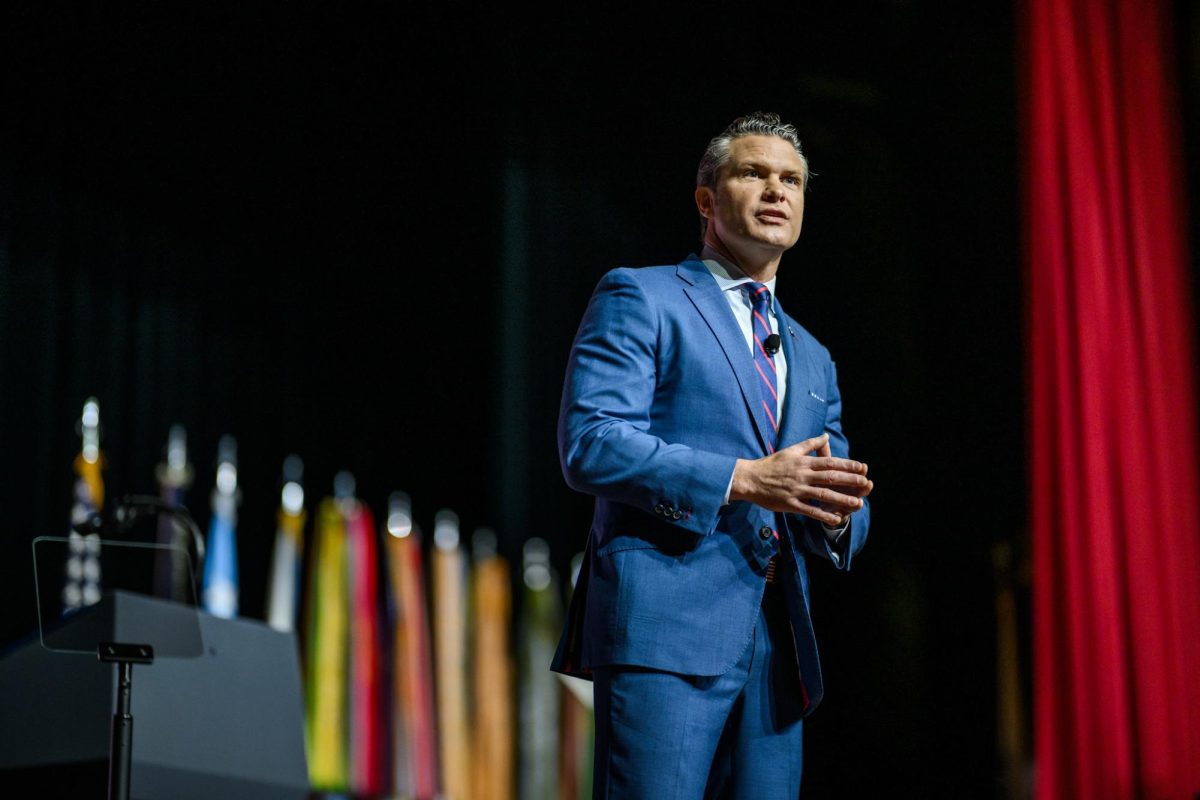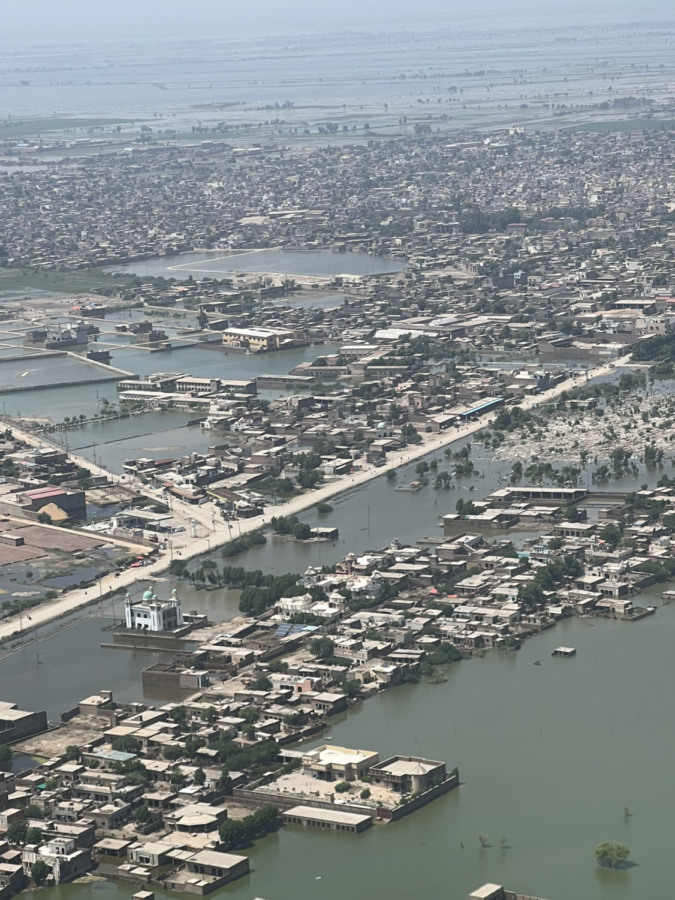Asia Region Threatened: Water Disasters
Photo by Courtesy of Creative Commons
The devastation in Pakistan after the flooding.
November 8, 2022
In historical, never-seen-before proportions, different parts of Asia have reported many cases of flooding and storms in places such as Pakistan and the Philippines.
Since June 14, 2022, flooding in Pakistan has devastatingly affected many lives. Due to the above-average rainfall this year, about one-third of the country is submerged underwater. In addition, nearly 1.7 million homes were destroyed, leaving around 1,481 people dead and half a million people living in camps. As an agricultural country, the floods have destroyed about 70% of Pakistan’s crops, causing $10 billion in damages. Right now, the Pakistani government is giving out urgent aid to Pakistani people, and many organizations, such as UNICEF, have also come to help. Furthermore, Pakistan’s Minister for climate change, Sherry Rehman, has started gathering help to solve this problem.
Typhoon Noru, on September 26, 2022, affected many countries, including the Philippines, Viet Nam, and Thailand. In the Philippines, Typhoon Noru moved through the island nation and destroyed everything in its path. The typhoon started as category 1 but became category 5 in a few hours. As the typhoon passed the Philippines, it destroyed houses, caused flooding, and severed electricity. The government is directing supplies in order to clean up the areas affected by the typhoon. The Red Cross has also come in to help get people to safety. When Typhoon Noru reached Vietnam and Thailand, it had already weakened, but it still caused severe flooding. In Viet Nam, it was reported that there were many landslides in the Middle region of the country, specifically Da Nang, Hoi An, and more. Across these affected provinces, 8,139 houses were flooded, roofs were ripped from houses, and 88 households were evacuated. Over 6,000 hectares of crops were damaged, and over 34,423 livestock were killed or swept away. Around 400,000 people have been evacuated, but the flooding continues, leaving the area without electricity. In Thailand, there were many reports of houses being affected by flooding and strong wind across 35 districts. Currently,1 person died, and 2 were injured due to wind damage in Phetchabun, where a total of 1,301 households were affected by typhoon Noru in Thailand.
Scientists and meteorologists state plainly that the severity of these two events is linked to global warming. The culmination of carbon dioxide emissions has severely impacted the environment, heaving heavy rainfall in some areas and severe drought in others. It was reported that in 2022, there was a 24% increase in flooding rates compared to 2021. This was particularly due to the fact that the earth is 1.5 Celsius warmer this year than last. Because of this, many scientists and environmentalists have called for countries to limit their emissions in order to help solve this problem.
When asked about the causes and consequences of climate change, Kevin Hagen, environmental science teacher, mentioned, “Our current lifestyles have impacted the earth negatively with how our emissions have increased, causing the temperatures to rise.” Not only have our current lifestyles had a negative effect, but the consequences of the damage done by our ancestors can still be seen today. Hagen noted that “we had changed the earth geographically so much in a short amount of time.” Considering how the Industrial Revolution was a few hundred years ago, a lot has changed about the earth in a short amount of time. Prior to the Industrial Revolution, fossil fuels were not widely used; however, after it, the use of fossil fuels is seen nearly everywhere, contributing to the rise of carbon dioxide emissions and thus causing global warming. Though there have been multiple warnings about global warming for many years, most were ignored and still continue to be. In recent years, people have started to pay more attention to global warming because of more severe droughts and floods. Weather changes will only worsen if humans do not change their living habits.
At LFA, the news of flooding came in the midst of summer break and college applications, and many members of the community are unaware of what is going on in the home country of some of our students. When asked how we can make ourselves more aware of this situation, Hagen added, “LFA will offer a course on natural disasters this spring.” This course will help spread knowledge about these disasters and help interested students and faculty better understand what climate change is, why it affects different communities differently, and what we can do not just to prepare for intensifying weather extremities but also combat climate change too.







































